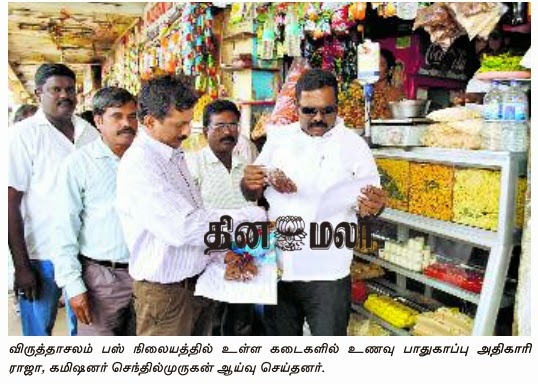The country’s lack of an efficient food recall mechanism has once again come to the fore.
In this regard, while FSSAI (Food Safety and Standards Authority of India) has uploaded a notification about the recall of Solgar ABC Dophilus Powder (a probiotic health supplement manufactured by a company in USA) on its website last week, many Food and Drug Administration (FDAs) and Food and Drugs Control Administration (FDCAs) and other regulatory compliance bodies in India are found to be unaware of the development.
While it is understood that issuing of and acting on notification does take time, what is alarming is that the said notification cites a preterm infant death in the United States as it was infected by Mucormycosis following the ingestion of the product. It further talks about how it can be hazardous to infant, children and those having low immunity if it is used by them.
Hence, it is a matter of concern that most compliance bodies have either not received the notification or seem to have treated it like other routine communication extended by FSSAI. For example, both Gujarat FDCA and Maharashtra FDA had not received it yet while an official from Tamil Nadu on the condition of anonymity admitted that they were yet to go through it.
Compliance bodies
Dr H G Koshia, commissioner, Food and Drugs Control Administration (FDCA), Gujarat, explained, “We are yet to receive a letter from FSSAI regarding Solgar’s recall. But since the notification has been uploaded onto the website, we would take action against pharmacists, retailers, wholesalers and e-tailers who are selling the recalled product.”
He added, “In India, food recall is still at a primitive stage, and there is no proper recall mechanism in place. There have been various deliberations by the food regulator about laying down the guidelines for the same, but they are in the initial stages, and it would take some time. In order to implement food recall in an effective manner, each department must be brought under a single umbrella.”
Meanwhile, Purushottam Bhapkar, food commissioner, Food and Drug Administration (FDA), Maharashtra, stated, “We have not received any letter from FSSAI, and that is the reason why we are unaware about the recall of any such product.”
This being the scenario, the product is still being sold at many retailers, pharma chains, and other outlets in the country, apart from being available on the Internet. Speaking on the condition of anonymity, an official from e-tailer Snapdeal.com said, “Solgar ABC Dophilus powder is in stock.” When quizzed about the recall of the product, she stated, “We are neither aware of any notification by FSSAI, nor have we received any letter regarding the suspension of the recalled product in India. Hence we are selling it.”
FSSAI take
Meanwhile, Vinod Kotwal, director, Codex and enforcement, FSSAI, answered a few queries on the issue. Excerpts:
In India there is no recall mechanism. So how would you ensure that all concerned including those who are selling on Internet comply with this recall?
Section 28 of the Food Safety and Standards Act-2006 deals with the provision of food recall procedure, which is as under:
(1) If a food business operator considers or has reasons to believe that a food which he has processed, manufactured or distributed is not in compliance with this Act, or the rules or regulations, made thereunder, he shall immediately initiate procedures to withdraw the food in question from the market and consumers indicating reasons for its withdrawal and inform the competent authorities thereof.
(2) A food business operator shall immediately inform the competent authorities and co-operate with them, if he considers or has reasons to believe that a food which he has placed on the market may be unsafe for the consumers.
(3) The food business operator shall inform the competent authorities of the action taken to prevent risks to the consumer and shall not prevent or discourage any person from cooperating, in accordance with this Act, with the competent authorities, where this may prevent, reduce or eliminate a risk arising from a food.
(4) Every food business operator shall follow such conditions and guidelines relating to food recall procedures as the Food Authority may specify by regulations.
What about the people who are already using the product? How would awareness be created among them?
In this particular case, the problem is restricted to a few lots and information has been e-mailed to all the concerned authorities, including those in the states / UTs, in this regard apart from being put on FSSAI’s website for public awareness.
Since the risk factor is huge - uncontrolled diabetes, cancer etc. - among infant and children the recall has to be quick. So how would the country ensure this without proper recall mechanism and infrastructure?
As per Sub-sections (1), (2) & (3) of Section 28, the primary responsibility regarding the recall of food products rests with the food business operators. Recall of food, which is found to be unsafe at any stage, is a challenging process in the Indian context, especially when the retail distribution / sale business does not maintain the particulars and database of the purchasers thereof. However, for the present, it is feasible to block its further sale from out of the unsold stocks with the FBOs. Keeping this peculiarity in view, a draft notification i.e. Food Safety and Standards (Recall Procedures) Regulation has been prepared and the same will be put in the public domain for comments / feedback from stakeholders on the same regarding the procedures of recalling the food products.
Many of the FDAs in the country and some Internet portals are not aware of the recall even now. Would not this scenario be dangerous for infants and children?
It is expected that the authorities recommending the product usage and those using the said product are also responsive to the recall notice. Since the advisory stands addressed to all possible stakeholders, it is expected to achieve the desired outcome.


